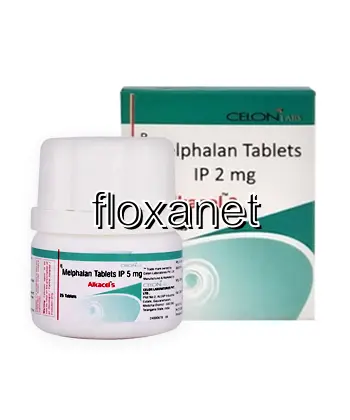Shop Melphalan Online in the USA
| Package | Dosage | Price | Price per Dose | |
|---|---|---|---|---|
| Dosage: 2mg | ||||
| 150 pill | 2mg | $1,353.29 | $9.02 | |
| 125 pill | 2mg | $1,171.46 | $9.37 | |
| 100 pill | 2mg | $957.71 | $9.58 | |
| 75 pill | 2mg | $728.69 | $9.72 | |
| 50 pill | 2mg | $492.73 | $9.85 | |
| 25 pill | 2mg | $249.83 | $9.99 | |

Melphalan Description
Overview of Melphalan
Melphalan is a chemotherapy medication primarily used to treat various types of cancer, including multiple myeloma and ovarian cancer. It belongs to a class of drugs known as alkylating agents, which work by damaging the DNA in cancer cells. This damage inhibits the cells’ ability to reproduce and grow, ultimately leading to their destruction. Melphalan is known for its effectiveness in controlling tumor growth, but like all chemotherapy drugs, it also affects healthy cells, which can lead to side effects.
How Melphalan Works
Melphalan operates by transferring alkyl groups to DNA molecules. This alkylation process causes cross-linking of DNA strands, preventing proper replication and transcription. As a result, cancer cells lose their ability to divide and die. The drug is typically administered in controlled doses to maximize its cancer-fighting effects while minimizing harm to healthy tissues. It can be given orally or through intravenous injection, depending on the treatment protocol and the specific type of cancer being addressed.
Uses and Indications
This medication is most often prescribed for multiple myeloma, a cancer of plasma cells, and certain ovarian cancers. It may also be used in combination with other treatments to improve overall outcomes. In some cases, Melphalan is used prior to stem cell transplantation. Its flexible administration routes allow for tailored treatment plans suited to individual patient needs. Doctors carefully monitor patients to adjust dosages and manage potential side effects effectively.
Advantages of Melphalan
One of the key benefits of Melphalan is its proven efficacy in managing difficult-to-treat cancers. It has a long-standing history of successful use in oncology. When administered correctly, it can significantly reduce tumor burden and prolong patient survival. Its oral form offers convenience for outpatient treatment, enabling patients to administer it at home under medical supervision. Additionally, Melphalan has been extensively studied, and its dosing guidelines are well established, helping clinicians deliver safe and effective therapy.
Potential Side Effects
Like many chemotherapy agents, Melphalan may cause side effects. Common adverse reactions include nausea, vomiting, hair loss, fatigue, and suppression of blood cell production. This immunosuppression can increase the risk of infection and bleeding. Less frequently, patients may experience gastrointestinal issues, skin reactions, or allergic responses. Long-term use raises concerns about possible effects on bone marrow function. Patients undergoing treatment should be closely monitored for blood counts and overall health status to detect and manage side effects promptly.
Precautions and Considerations
Before starting Melphalan therapy, patients should disclose their complete medical history and any pre-existing conditions. The drug may not be suitable for patients with certain blood disorders or those who are pregnant or breastfeeding. It is important to follow dosage instructions carefully to avoid toxicity. Given its potency, healthcare providers typically perform regular lab tests during treatment. Patients should report any unusual symptoms immediately to their medical team to ensure safe management of their therapy.
